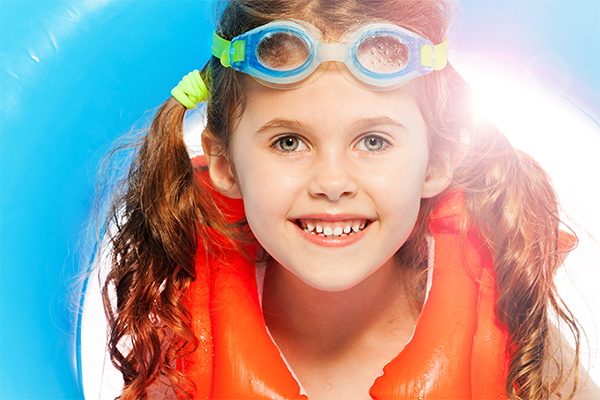Summer getaways often take families to the open waters for cool and refreshing fun. But, just like pools, ponds, lakes; and beaches can be dangerous, especially for children, if you don’t follow some important guidelines. Every year, nearly 1,000 children die by drowning. It is the second-leading cause of accidental death for young people between the ages of 5 and 24.
Drowning can be prevented with attention and care.
Supervision is the single most important safety measure. This supervision should be a designated task for an adult who can swim and rescue a drowning victim if needed.
Kids need constant supervision where water is involved. Young children can drown in less than 2 inches of water. Even if a child knows how to swim, keep a close watch at all times around a body of water.
Here are seven steps that will help you keep your family safe around open water:
- Make sure an adult who can swim and knows CPR is actively watching children whenever they are in or near the water; and use “touch supervision” by staying within arm’s length of younger children.
- Never swim alone. Even good swimmers need buddies, including teens and adults.
- Caution teenagers to never take risks in open water.
- Don’t let children swim in rivers or fast-moving water, as they can tire more quickly and get into trouble.
- Teach children to avoid diving into open water except when permitted by an adult who knows the depth and has checked for underwater dangers.
- Allow ocean swimming only when a lifeguard is on duty.
- Caution children about rip currents. If caught in a rip current, it’s best to swim parallel to shore until you escape the current, and then swim back to shore.
I also advise that if your open-water fun includes boating, everyone in the boat should wear the appropriately sized, snug-fitting life jacket.
According to the Nemours: KidsHealth website, adults should wear life jackets not only for personal protection, but to set a good example for the children. Life jackets may seem like a nuisance, but it could mean life or death in an accident.
Inflatable water wings, toys and rafts should never be substituted for life preservers. They’re not intended for lifesaving measures, but only for play and leisure.
Drowning is one of the most common and most tragic injuries that can occur in children and teenagers. Please take appropriate steps to prevent it. Don’t put fun in the water at risk; with extra care and precaution, you and your family can have a safe and enjoyable summer.
Children’s Hospital of Georgia is the only hospital in the area completely dedicated to the care and well-being of children. At CHOG, we care enough to ensure that your child gets the attention he or she deserves in order to receive a proper diagnosis.
CHOG cares about children.
For more information about Children’s Hospital of Georgia, please visit our website at augustahealth.org/chog or call 706-721-KIDS (5437).
Sources: Nemours: KidsHealth




